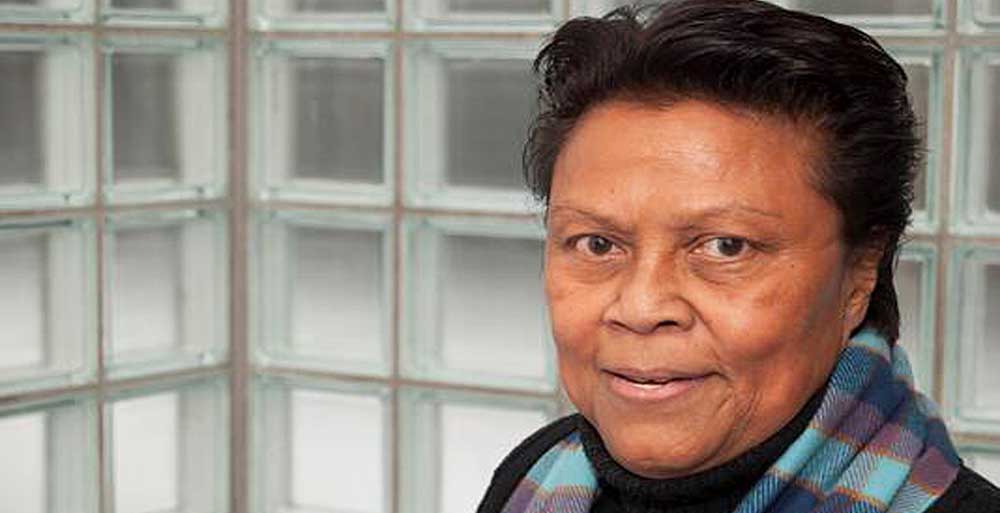
, news editor, Adventist Review
A Dutch Adventist
woman who nearly flew on the Malaysia Airlines jet that was shot down over
Ukraine said she changed her ticket at the last minute because she didn’t wish
to travel on the Sabbath.
Frieda Souhuwat-Tomasoa,
67, had booked a ticket on the July 17 flight to make an emergency visit to
Ambon, Indonesia, where a major conference that she was organizing was on the
brink of collapse.
But three days
before the flight, Souhuwat-Tomasoa realized during morning worship with her
husband, Max, that her itinerary meant that she would end up traveling on
Sabbath, July 19, to reach her destination.
Malaysia Airlines
Flight 17 was downed by a missile last Thursday as it flew over rebel-held
eastern Ukraine on a flight from Amsterdam to the Malaysian capital, Kuala
Lumpur. All 298 people on board the plane died.
“On Friday, when I
heard about the accident, I cried during my phone call with Max and said to
him, ‘God is good and great to His children,’” Souhuwat-Tomasoa said. “His
Spirit spoke to me during our devotional on Monday morning and told me, ‘If you
take this route, you will travel on the Sabbath. Don’t.’
“God still speaks
to us every single day if we are only quiet and willing to listen to His
voice,” she said in an interview. “I still thank Him every moment of the day
for His guidance and blessings.”
Souhuwat-Tomasoa,
who has been a member of the Seventh-day Adventist Church since her baptism at
the age of 20, said she has never flown on the Sabbath during her
many trips for UNPO, a Hague-based organization that seeks to find nonviolent
solutions to conflicts that affect indigenous peoples, minorities, and unrecognized
or occupied territories.
“In all of my UNPO
missions, no matter where I’ve gone, I have kept the Sabbath and not once set
foot on an airplane,” she said in the e-mailed interview in Dutch. The
interview, given from Indonesia, was translated into English by the church’s
Netherlands Union Conference.
Souhuwat-Tomasoa,
a member of the Netherlands Union Conference’s Executive Committee and an elder
at her local Rotterdam-North church, retired from a career in Dutch
government service but remains active with UNPO, which she joined in 1991.
She serves as a
representative of the people of the Maluku Islands, where a conflict erupted
between Christians and Muslims in the regional capital, Ambon, in 1999. The
sectarian violence, which saw entire villages burned down, raged until 2003 and
killed an estimated 10,000 people.
Souhuwat-Tomasoa
was present in Ambon during the violence and used her position with UNPO to steer shiploads of food and clothing from ADRA, the Adventist relief agency,
to those who needed assistance.
She also helped
facilitate a peace agreement that ended the fighting and has engaged in efforts to rebuild the
shattered region, again working with the Netherlands branch of ADRA. She
said the four years of fighting left many orphans and people with
post-traumatic stress disorder.
When a multiyear
study found that the Maluku Islands are the second poorest of Indonesia’s 33
provinces and its inhabitants are among the least educated in the country, UNPO
decided to organize a major conference to create understanding and insight into
local problems and to help shape the province’s policy. Souhuwat-Tomasoa set to
work organizing the conference with Ambon’s three largest universities.
“Unfortunately,
it’s been a long and difficult road due to many different factors, including
objections by the central government in Jakarta and the local government,” Souhuwat-Tomasoa
said. “What further complicates matters is the large-scale corruption in
the province.”
Last month,
everything appeared to be in place. The conference program was finished. The time
schedule and speakers had been arranged, and the event was scheduled to take
place Aug. 1 to 5.
But on July 8,
Souhuwat-Tomasoa received a phone text message from Ambon: The conference would
have to be canceled. Leaders at the three collaborating universities were being
threatened with dismissal.
UNPO held an
emergency meeting on Sunday, July 13, and decided that Souhuwat-Tomasoa should
return to Ambon to look for a way to save the conference. At the meeting,
Souhuwat-Tomasoa agreed to take the July 17 flight on Malaysia Airlines.
“When I came home,
I told my husband, Max. He answered, ‘It is your duty, and you have to do
this,’” Souhuwat-Tomasoa said.
But after their
morning devotional the next day, she told her husband that she would rather
leave a day earlier, on Wednesday, July 16.
“If I were to
leave on Thursday, I would spend the Sabbath traveling to Ambon, and I have
never journeyed on a Sabbath in my life,” she said.
She and her
husband have no children.
With her husband’s
support, Souhuwat-Tomasoa immediately contacted a travel agency and booked the
new flight on the Emirates airline.
“I normally fly
Malaysia Airlines or KLM,” she said. “I even traveled on a Malaysia Airlines
flight in June.”
She informed UNPO
about the change on Tuesday, confirmed the new flight the same day, and left
Amsterdam on Wednesday.
What happened to
the Malaysia Airlines flight stunned and saddened her.
“I am here to
witness that God has spared me because I need to continue my mission here in
Ambon and be available to aid people in our world who need help,”
she said.
“At this moment,
I’m still working relentlessly to solve the problems concerning the conference
and will continue to listen to God’s voice, no matter what the outcome. His
will be done, not mine.”
Contact Adventist Review news editor Andrew McChesney at [email protected].
Twitter: @ARMcChesney
Adventist Review, July 22, 2014: “Dutch Adventist Leader Changed Malaysia Airlines Ticket at Last Minute”